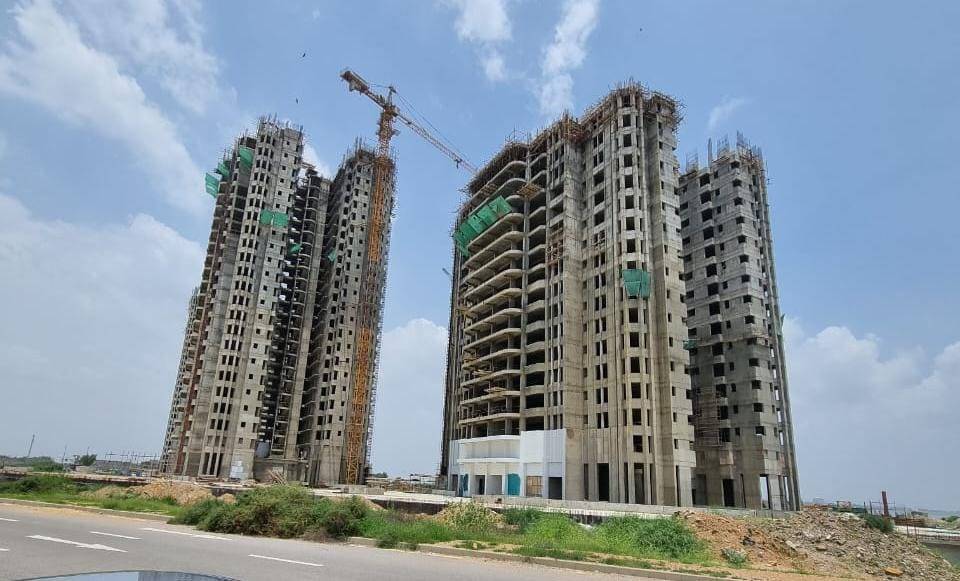Pakistan Real Estate Sees Surge in Crowdfunding How Platforms Like NEST Are Changing the Investment Landscape

Introduction
In recent years, Pakistan’s real estate sector has traditionally thrived on large capital investments—often inaccessible to most middle-income buyers. However, the emergence of real estate crowdfunding platforms such as NEST by Arazi.pk is rewriting the narrative. By democratizing property investment with small ticket sizes and verified listings, these platforms are transforming how Pakistanis invest in real estate. Here’s how this shift is unfolding—and what it means for developers, investors, and the broader market.
1. What is Real Estate Crowdfunding?
Real estate crowdfunding enables investors to participate in property projects through pooled resources. Instead of buying a full property, individuals can purchase stakes starting from as low as USD 1,000, depending on the platform. NEST, by Arazi.pk, is pioneering this model in Pakistan—offering verified properties, fractional ownership, and reduced entry barriers. This approach not only opens doors for aspiring retail investors but also adds liquidity and flexibility to the traditionally rigid property market. In turn, developers can tap into a broader investor base, and project owners can secure funding faster, without relying solely on a few large buyers.
2. Why Now? Market Conditions & Investor Behavior
Several market factors make crowdfunding increasingly attractive:
High inflation and currency devaluation have eroded purchasing power, making large real estate investments riskier for average buyers.
Volatile gold and stock markets push investors toward real estate—but smaller, safer bets via crowdfunding are more appealing than lump-sum investments.
Platforms like NEST offer transparency and validation, addressing concerns over fraud and fake listings—a long-standing issue in Pakistan’s property market.
Tech-savvy millennials and NRPs (Non-Resident Pakistanis) look for accessible, regulated investment avenues—crowdfunding aligns perfectly with their expectations.
Regulatory uncertainty and speculation continue to plague real estate. Fractional models reduce exposure and risk, while still allowing participation in high-value schemes.
These conditions have created fertile ground for platforms like NEST, which bridge the gap between complex real estate investment and community-level participation.
3. Benefits to Stakeholders
For Retail Investors:
Break high capital thresholds with lower entry points
Spread investment across multiple projects and types
Improve portfolio diversification
For Developers:
Expanded investor pool, including overseas Pakistanis
Faster funding cycles without relying on institutional lenders
Market validation through multiple investors rather than a few big buyers
For Platforms:
Build trust in the real estate ecosystem with verified listings
Position as fintech-savvy solutions in an otherwise traditional market
Encourage repeat engagement and long-term growth through credibility
4. Challenges to Watch
While promising, the crowdfunding model faces certain hurdles:
Regulatory clarity: Real estate crowdfunding is still unregulated in Pakistan. Absence of legal frameworks could limit scalability.
Investor education: Buyers must understand fractional ownership, property valuation, and risk exposure before committing.
Project reliability: Verified listings reduce fraud, but without a legal safety net, investor confidence hinges on platform credibility.
Exit strategy: Resale of fractional stakes isn’t widely streamlined yet, creating liquidity bottlenecks for investors wishing to cash out.
Platforms like NEST need to proactively address these challenges through transparency, legal partnerships, and investor safeguards.
5. What’s Next? Forecast & Potential
Looking ahead, real estate crowdfunding could become a mainstream channel in Pakistan if:
Regulatory bodies (SECP, SBP) recognize and regulate crowdfunding models.
More platforms emerge, increasing competition and improving investor offerings.
Awareness campaigns educate Pakistanis—especially NRPs and millennials—on the benefits of fractional real estate investment.
Market integration enables fractional resale through secondary platforms or exchange-like mechanisms.
If these strands align, the model could reduce speculative bubbles, improve housing sector capitalization, and bring real estate investment to a broader base—making the property market more resilient and inclusive.
6. Conclusion
Real estate crowdfunding through platforms like NEST isn’t just a new market trend—it’s a transformative shift in how Pakistanis access property investment. By democratizing capital entry, promoting transparency, and offering portfolio flexibility, crowdfunding can reshape both developer funding and investor participation. For developers and real estate professionals, this is a prime opportunity to engage fresh audiences and explore innovative marketing strategies. For investors, it promises a safer, smarter way into a traditionally exclusive domain.


